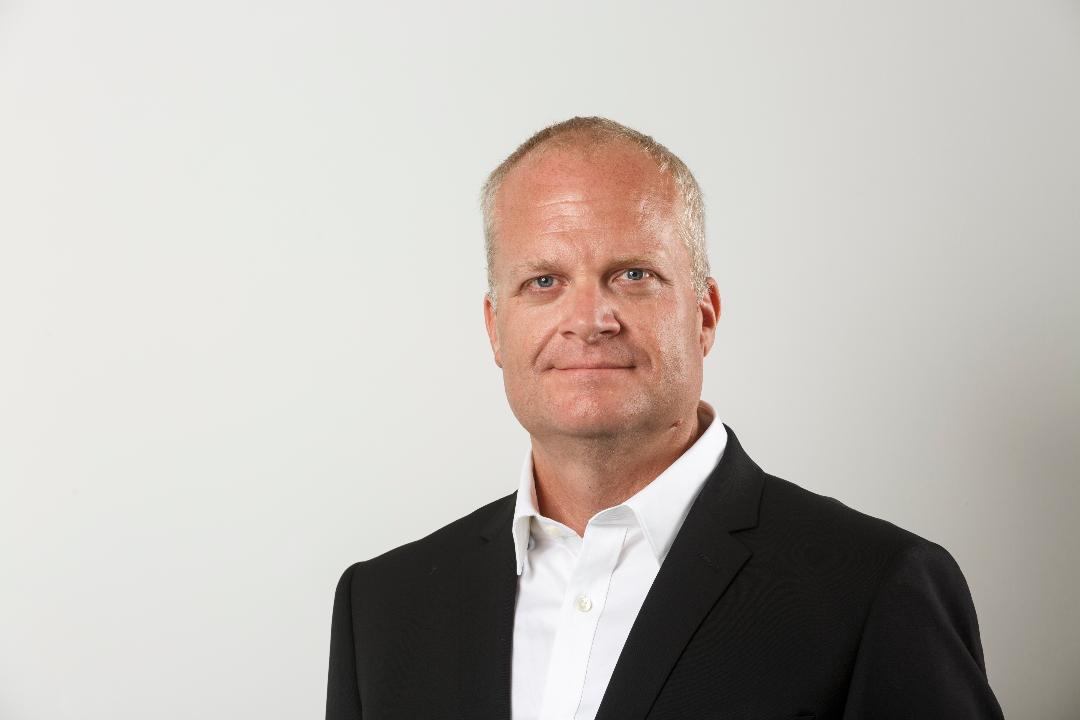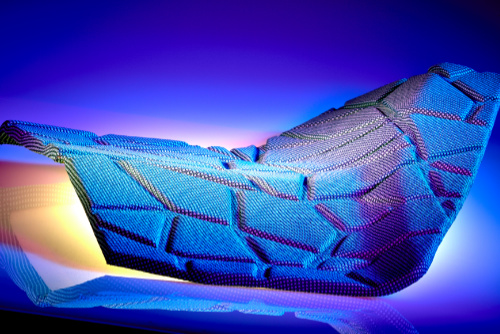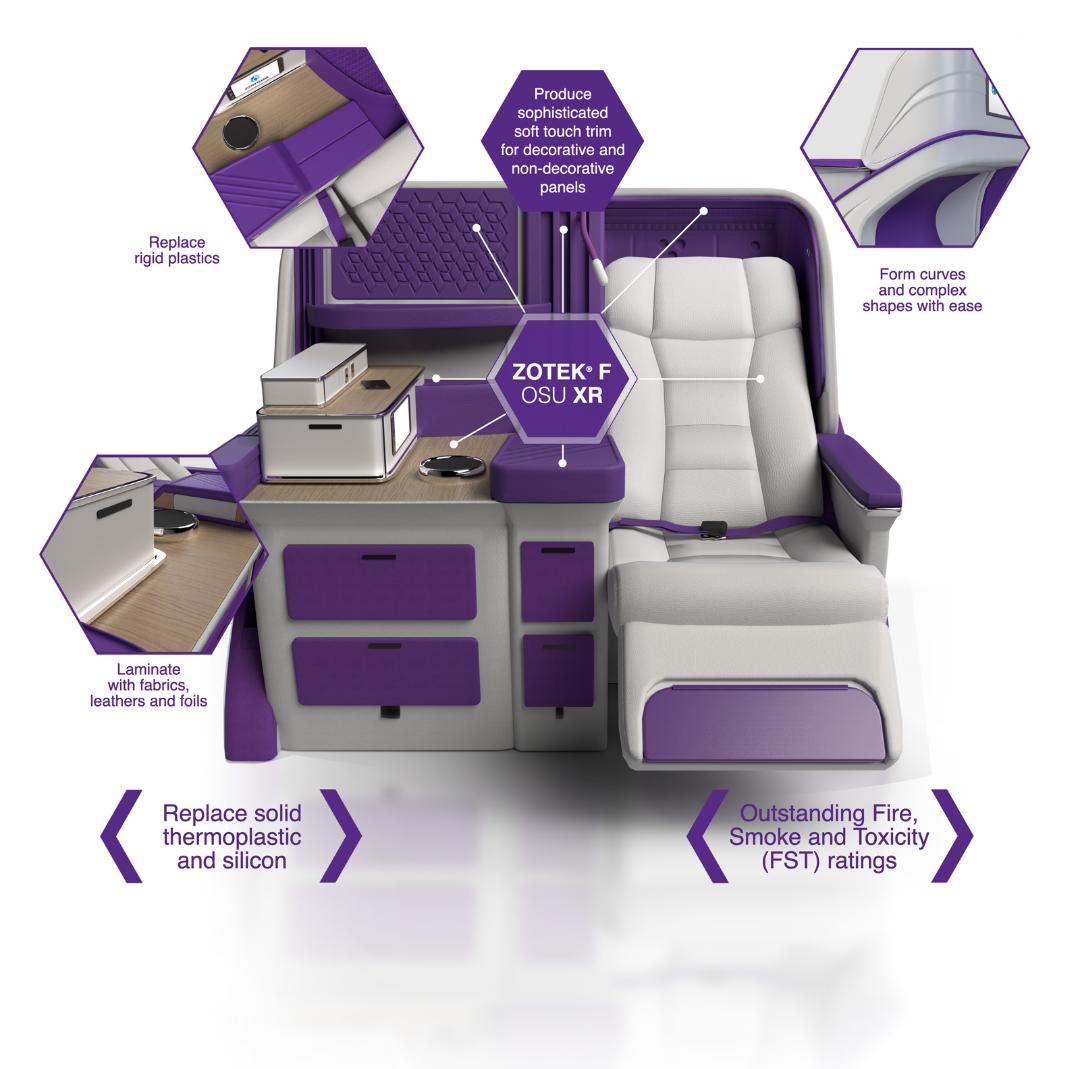Zotefoams Agrees to Long-Term PVDF Supply Deal With Solvay

U.K.-based firm targets its closed-cell, crosslinked PVDF foam for interior aircraft applications
With an eye on the aviation and aerospace sectors, cellular materials producer Zotefoams PLC struck a long-term supply deal with Solvay SA for the Belgian company’s Solef brand polyvinylidene fluoride (PVDF). Zotefoams will use it to produce Zotek F high-performance, closed-cell, crosslinked foam for interior aircraft applications in ducting, carpet underlay, environmental control systems and insulation.
It was vital to secure a steady supply of Solef PVDF given that it is in high demand for use in electric vehicle (EV) and hybrid vehicle batteries, said James Bridges, director of High-Performance Products at Croydon, England-based Zotefoams. Solvay has responded by investing heavily to boost production of the material.
Increasing PVDF Production

MGR Foamtex Ltd. uses the Zotek F OSU XR grade in MGRSoftWall NextGen dual-density foam for soft-touch aircraft seating. The lightweight foam saves up to 220 pounds of weight per aircraft.
The Brussels-based polymer and composite materials supplier said in June that it had more than doubled the on-site production of Solef at its Changshu, China, plant. It also recently announced a €300 million ($331 million) investment in PVDF production at its site in Tavaux, France. That will boost the facility’s capacity to 35 kilotons (77.2 million pounds), making it the largest PVDF production site in Europe. Solvay cites growing demand for lithium-ion batteries in EVs and hybrid vehicles as a primary driver for these expansions. Zotefoams sees strong growth in the aerospace sector, as well.
Zotefoams, the world’s largest maker of lightweight, crosslinked polyolefin block foams and a specialist in technical foams, notes that Solef PVDF is inherently flame retardant and combines high purity with robust mechanical and insulation properties, electrochemical stability and broad chemical resistance at high temperatures.
In a July 24 interview, Bridges said the agreement with Solvay is about more than a steady supply of material in unpredictable times. Zotefoams also views Solvay as a key technical innovation partner.
“PVDF foam is the ideal material for a multitude of applications in aircraft and spacecraft interiors,” he said. “As the commercial aviation sector strives to meet stringent carbon reduction targets, the lightweighting capabilities of Zotek F are more in demand than ever, so the announcement of our partnership with Solvay could not be more timely. We look forward to working together to explore new horizons with cellular materials based on Solef PVDF.”
A Lightweight, Extra-Rigid Foam Grade

There are many benefits and potential applications of Zotek F OSU XR foam in premium aircraft seating.
Zotefoams recently developed Zotek F OSU XR, an extra-rigid, lightweight OSU foam that Bridges said offers up to 70 percent weight savings over solid thermoplastic alternatives. (OSU refers to a methodology for determining the heat-release characteristics of materials used in aircraft interiors.) The company is targeting the grade for first-class and premium airplane seat pods, covered decorative and non-decorative panels, armrests, consoles, tray tables and footwells.
The material can be laminated together, or with decorative fabrics, leathers and foils in a one-shot process to create a single material that is rigid on one side and soft and flexible on the other. It can be formed into complex shapes and curves, offering extensive design possibilities. Zotefoams’ nitrogen expansion manufacturing process is said to yield a uniform, high-purity, low-toxicity, durable range of foams.
Solvay Reveals New Identities
Meanwhile, early last year Solvay announced plans to split into two publicly traded companies, and it recently revealed more about those plans. Solvay’s plastics and composites businesses will be in a new specialty company called Syensqo. Those operations had 2022 sales of €7.9 billion ($8.7 billion). The other company will continue to be called Solvay and make soda ash, peroxides, silica and similar products. The split is due to be completed by December.
